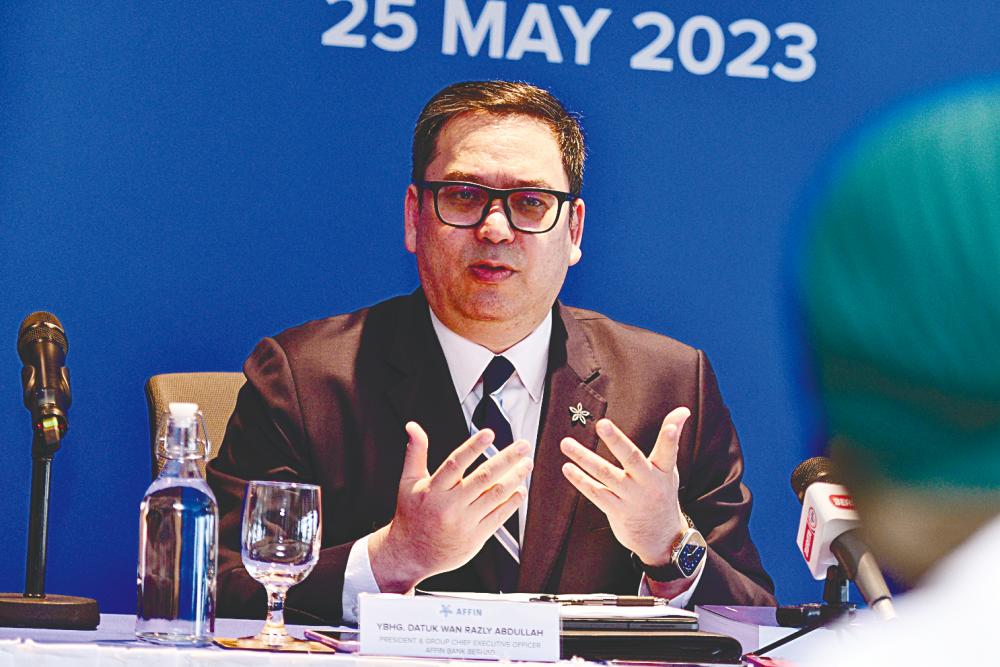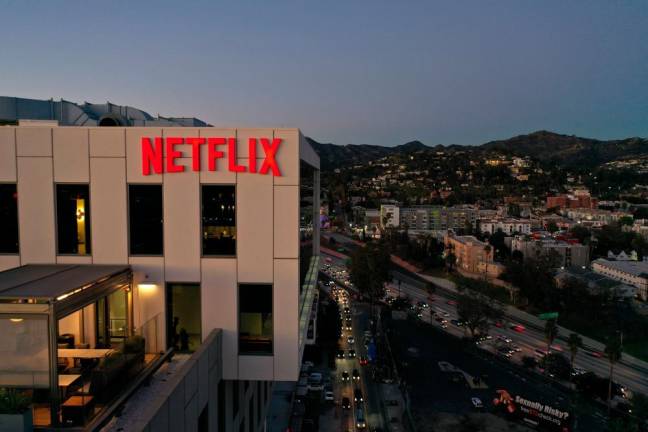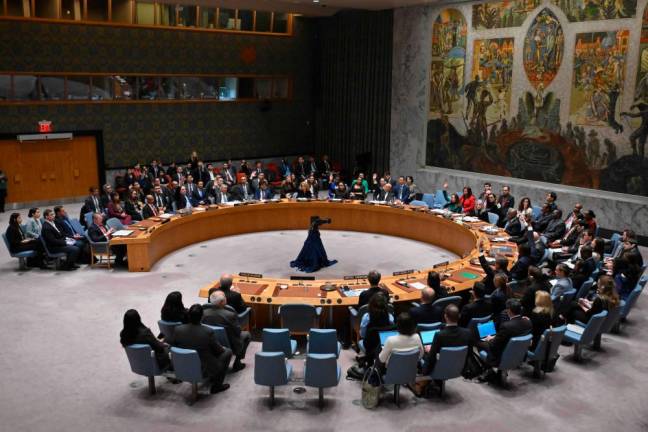KUALA LUMPUR: Affin Bank Bhd is strengthening its risk management strategies and optimising asset quality in anticipation of upcoming global headwinds, according to its president and group CEO Datuk Wan Razly Abdullah.
Wan Razly said that the bank is aware of significant headwinds coming into this financial year and is actively working to lower its risk appetite.
“We see the US and Europe market slowing down, with a strong likelihood of a recession in both regions. This will have a knock on effect on Asia and also Malaysia in the second half of the year.
“(To mitigate these risks) we are on a journey to lower our risk appetite. So everything we do is to de-risk the bank,” he told a press conference after its AGM today.
Additionally, Affin Bank forecast a slowing down of its loan growth to between 10% and 11% for financial year 2023 (FY23).
“We still see a lot of business opportunities in Malaysia. But we will taper down our growth to not as high as 15%, maybe low single digits, within 10%-11% or the highest single digits level, depending on how severe the slowdown or recession will impact the US and Europe,” he said.
Wan Razly commented that it will be challenging for Malaysian banks to grow their net interest margin (NIM) this year, and they will need to focus on reducing the cost of funds. The bank anticipates a 7% return on equity (ROE) in the near term, with a potential increase of up to 10% by 2025.
“I think it will be a long year. Every month we hear news of inflation going up. We hear some countries in the world are increasing interest rates, and so forth. So we must buckle down and strengthen ourselves. And that’s what we’re doing. We’re investing in systems for better service. And we’re preparing the bank and our balance sheet to be resilient,” he said.
He said Affin Bank has demonstrated substantial improvement in its asset quality, marked by a significant decrease in gross impaired loans and the bad loans ratio.
“You can see our improvement in terms of our gross impaired loans and the bad loans ratio, which has significantly decreased. Currently, we are below 2%, whereas previously it was at three and a half percent. So that is a huge improvement in terms of asset quality. Furthermore, we are tightening our underwriting standards to avoid a repeat of bad loans (like) in the past.
“We have also allocated significant reserves in terms of provisions. Currently, our loan loss coverage provision is above 100%, serving as buffers to protect us from any future headwinds,” he said.
Wan Razly mentioned that Affin has been working on increasing its Casa ratio and, although they have been lagging behind in this aspect, the bank has been one of the fastest in terms of growth. Currently, their Casa ratio stands at 23.5%, and their goal is to reach 25% by the end of this year and 30% by 2025.
“We have a number of plans in terms of Casa. One of them involves basically our mobile banking app. We believe that the new app will be exciting for our customers and they will enjoy using our mobile banking app. That is another customer proposition that will boost our Casa ratio.
“All banks are competitive, so you need to have a value proposition. We have three value propositions. One is our unrivaled customer service. So you look at our NPS (net promoter score), you know it has improved tremendously from where we were in the past. We are now at 40 points NPS score, we want to push it to 50 points NPS score.
“And we want to be a leader in terms of digital. This is a new area where we aim to establish ourselves and build our brand. We have invested 400 million, with 80% allocated to IT infrastructure, to strengthen our digital position for the future,” he said.













